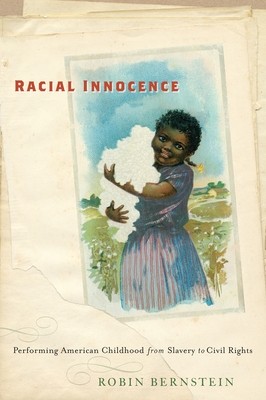
- We will send in 10–14 business days.
- Author: Robin Bernstein
- Publisher: New York University Press
- Pages: 328
- ISBN-10: 0814787088
- ISBN-13: 9780814787083
- Format: 15 x 22.9 x 2.3 cm, softcover
- Language: English
- SAVE -10% with code: EXTRA
Reviews
Description
Winner, Outstanding Book Award, Association for Theatre in Higher EducationWinner, Grace Abbott Best Book Award, Society for the History of Children and Youth
Winner, Book Award, Children's Literature Association
Winner, Lois P. Rudnick Book Prize, New England American Studies Association
Winner, IRSCL Award, International Research Society for Children's Literature
Runner-Up, John Hope Franklin Publication Prize, American Studies Association
Honorable Mention, Book Award, Society for the Study of American Women Writers
Part of the American Literatures Initiative Series In Racial Innocence, Robin Bernstein argues that the concept of "childhood innocence" has been central to U.S. racial formation since the mid-nineteenth century. Children--white ones imbued with innocence, black ones excluded from it, and others of color erased by it--figured pivotally in sharply divergent racial agendas from slavery and abolition to antiblack violence and the early civil rights movement. Bernstein takes up a rich archive including books, toys, theatrical props, and domestic knickknacks which she analyzes as "scriptive things" that invite or prompt historically-located practices while allowing for resistance and social improvisation. Integrating performance studies with literary and visual analysis, Bernstein offers singular readings of theatrical productions from blackface minstrelsy to Uncle Tom's Cabin to The Wonderful Wizard of Oz literary works by Joel Chandler Harris, Harriet Wilson, and Frances Hodgson Burnett; material culture including Topsy pincushions, Uncle Tom and Little Eva handkerchiefs, and Raggedy Ann dolls; and visual texts ranging from fine portraiture to advertisements for lard substitute. Throughout, Bernstein shows how "innocence" gradually became the exclusive province of white children--until the Civil Rights Movement succeeded not only in legally desegregating public spaces, but in culturally desegregating the concept of childhood itself. Check out the author's blog for the book here.EXTRA 10 % discount with code: EXTRA
The promotion ends in 18d.11:02:13
The discount code is valid when purchasing from 10 €. Discounts do not stack.
- Author: Robin Bernstein
- Publisher: New York University Press
- Pages: 328
- ISBN-10: 0814787088
- ISBN-13: 9780814787083
- Format: 15 x 22.9 x 2.3 cm, softcover
- Language: English English
Winner, Grace Abbott Best Book Award, Society for the History of Children and Youth
Winner, Book Award, Children's Literature Association
Winner, Lois P. Rudnick Book Prize, New England American Studies Association
Winner, IRSCL Award, International Research Society for Children's Literature
Runner-Up, John Hope Franklin Publication Prize, American Studies Association
Honorable Mention, Book Award, Society for the Study of American Women Writers
Part of the American Literatures Initiative Series In Racial Innocence, Robin Bernstein argues that the concept of "childhood innocence" has been central to U.S. racial formation since the mid-nineteenth century. Children--white ones imbued with innocence, black ones excluded from it, and others of color erased by it--figured pivotally in sharply divergent racial agendas from slavery and abolition to antiblack violence and the early civil rights movement. Bernstein takes up a rich archive including books, toys, theatrical props, and domestic knickknacks which she analyzes as "scriptive things" that invite or prompt historically-located practices while allowing for resistance and social improvisation. Integrating performance studies with literary and visual analysis, Bernstein offers singular readings of theatrical productions from blackface minstrelsy to Uncle Tom's Cabin to The Wonderful Wizard of Oz literary works by Joel Chandler Harris, Harriet Wilson, and Frances Hodgson Burnett; material culture including Topsy pincushions, Uncle Tom and Little Eva handkerchiefs, and Raggedy Ann dolls; and visual texts ranging from fine portraiture to advertisements for lard substitute. Throughout, Bernstein shows how "innocence" gradually became the exclusive province of white children--until the Civil Rights Movement succeeded not only in legally desegregating public spaces, but in culturally desegregating the concept of childhood itself. Check out the author's blog for the book here.

Reviews